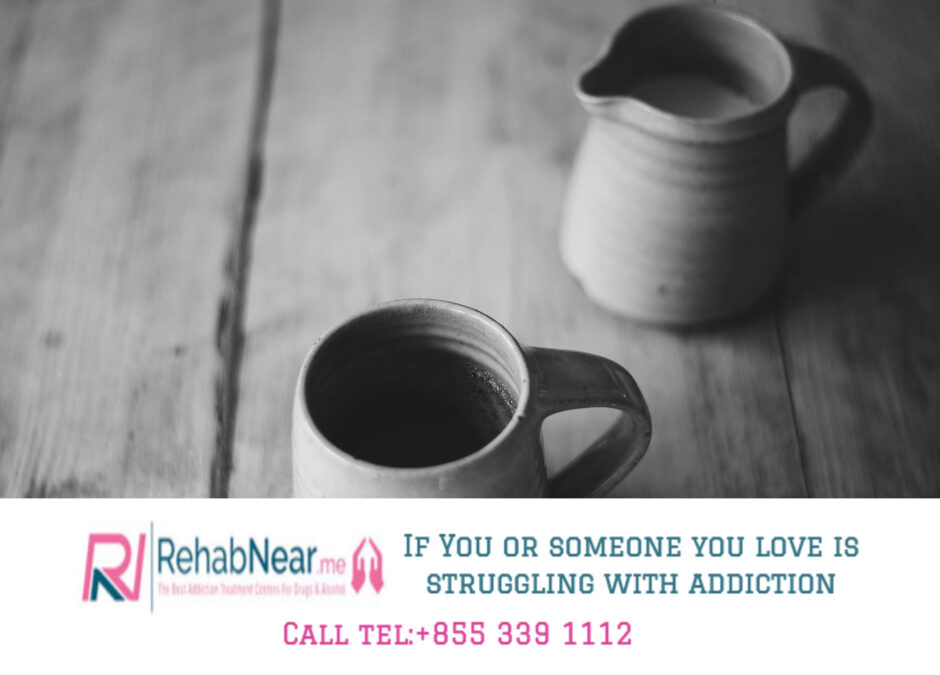How Addictive is Caffeine?
855 339 1112
Caffeine Addiction
Caffeine dependence bears some similarities with other drug addictions. For example, addicted people can struggle to quit drinking caffeine the same way others struggle to quit drugs. They may even experience withdrawal symptoms.
Navigation: Caffeine Overview, Caffeine Addiction, Signs of Caffeine Addiction, Rehab Is Your Best Chance
Caffeine is present in most people’s favorite beverages. If you drink coffee, tea, cola, or energy drinks, then you drink caffeine. While these drinks are widely consumed, they don’t have the same bad reputation as alcohol. And that is despite the fact that caffeine may also be just as addictive.
Caffeine dependence bears some similarities with other drug addictions. For example, addicted people can struggle to quit drinking caffeine the same way others struggle to quit drugs. They may even experience withdrawal symptoms.
But officials in the health industry still debate over whether it can be considered an actual addiction. Drugs like cocaine and amphetamines affect the brain’s reward center more than caffeine does.
Caffeine creates a surge of dopamine within the brain. However, it is not impactful enough to create an imbalance in the reward system.
Caffeine Overview
Caffeine is a stimulant that is present in drinks like coffee, tea, and cola. But it can also be present in chocolate bars, energy bars, and certain non-prescription medications. Caffeine is sometimes present in slimming pills and cough syrup. When consumed, caffeine increases alertness and enhances concentration.
People who drink caffeine crave for the feeling of alertness that it produces. Over time, they may develop dependence and start to feel like they need caffeine to function.
Regular ingestion of caffeine is known to cause fatigue, nausea, and headaches. It may also cause certain withdrawal symptoms. For instance, when a person who regularly drinks coffee suddenly stops taking it, they may feel nauseated or exhausted.
In 2012, the World Health Organization became the first organization in the medical field to classify caffeine addiction as a clinical disorder.

Caffeine Addiction
Caffeine addiction, though still debated by health experts, is one of the most common addictions in the world. A lot of people love drinking coffee, tea, energy drinks, and soda—and it’s not just because they taste good. People easily get hooked on caffeine because of the way it gives them energy. It also increases their metabolism, improves their mood, and enhances their concentration.
This central nervous system stimulant is regularly consumed by 90 percent of adults in the United States. In fact, an average of 200 mg of caffeine is consumed in the US every day. Most people who drink caffeine regularly also feel like they “need” to drink—especially in the morning.
Drinking caffeinated beverages can be a safe habit. But it can also develop into an addiction if treated as a daily necessity.
Dependence and addiction can develop quickly. If someone drinks caffeine every day, they will develop a tolerance, like how they would develop a tolerance for drugs or alcohol. This means after a while, they will require more caffeine to achieve the same effects. They won’t experience the same wake-up aspect that caffeine produces.
And just like other drugs, caffeine will produce withdrawal symptoms. This happens when addicted or dependent people abruptly quit. Oftentimes, withdrawal symptoms are intense enough that people relapse. Intense cravings are also very common for people who attempt to quit caffeine.
Signs of Caffeine Addiction
An addicted person will often try and fail to quit drinking their favorite caffeinated beverages. They will keep drinking even when they are already experiencing health problems.
Those who have a caffeine addiction often consume more than the recommended levels per day. But addiction to caffeine is characterized by how the substance affects a person’s daily life rather than the amount that they drink.
The Diagnostic and Statistical Manual of Mental Disorders does not consider caffeine addiction as substance use disorder. That said, they did acknowledge that the condition warrants further study.
According to health experts, adults should not consume more than 400 mg of caffeine per day. This is equivalent to about four cups of coffee.
Drinking more than the recommended amount regularly may put you at risk of adverse health effects. It may cause migraines, sleeping difficulties, headaches, irritability, nervousness, muscle tremors, and nausea.
Meanwhile, symptoms of caffeine withdrawal include fatigue, anxiety, irritability, headache, depression, and tremors.
If someone in the family is struggling with drug or alcohol addiction, it is important to seek help. A combination of medical detox and behavioral therapy can go a long way in the fight against substance abuse. Because every individual is affected by addiction differently, a comprehensive program tailored to their specific needs is necessary. Look for a nearby addiction treatment facility today and find out how drug treatment programs work.
Rehab is Your Best Chance
Treatment is an addicted individualʼs best option if they want to recover. Beating an addiction not only requires eliminating the physical dependence, but also addressing the behavioral factors that prevent them from wanting to get better. Simply quitting may not change the psychological aspect of addiction. Some people quit for a while, and then take drugs or alcohol again, only to overdose because they did not detox properly. Recovery involves changing the way the patient feels, thinks, and behaves.









